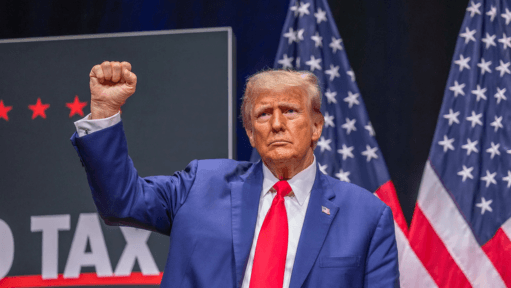
Global Market Outlook: Navigating Investment Opportunities in a Trump Re-election Scenario
How the U.S. Dollar, Stock Markets, Bonds, and Gold Could Be Impacted by Trump’s 2024 Return to Power
With Donald Trump projected to win the 2024 U.S. presidential election, financial markets are already responding, and investors globally are evaluating the potential effects on their portfolios. The expected impact includes gains in the U.S. dollar and stock markets, while bonds and gold may underperform. Understanding how these shifts could play out will help investors strategically position their assets to minimize risks and maximize returns.
The U.S. Dollar: Set for Gains
The U.S. dollar is expected to strengthen following Trump’s re-election. With policies focused on domestic growth, such as tax incentives for businesses and potential trade tariffs, the dollar could see sustained appreciation. Investors holding U.S.-based assets or dollar-denominated investments may find this advantageous, as a stronger dollar typically boosts the global purchasing power of dollar-denominated investments.
For international investors, a stronger dollar also brings opportunities to diversify in other currencies that might weaken against the dollar. Conversely, investors with significant holdings in foreign currencies might consider rebalancing toward dollar-denominated assets to avoid currency-related losses.
Stock Market: Rally Anticipated
The stock market is likely to rally in the short term, especially sectors like energy, defense, and finance, which have historically performed well under Trump’s administration. His policies tend to support corporate profits through tax cuts and regulatory rollbacks, particularly favoring industries with high capital investment.
- Energy Sector: Trump’s pro-energy policies often promote oil, gas, and coal industries by reducing environmental regulations. This may drive stock gains for companies in these sectors, especially those focused on traditional energy.
- Defense and Infrastructure: Defense stocks are likely to benefit as Trump’s administration has previously prioritized military spending. Additionally, any infrastructure projects proposed to boost job creation could support related sectors, from construction to manufacturing.
- Finance: Trump’s policies typically favor deregulation, a factor that can boost profitability for banks and financial institutions. Investors looking to take advantage of this trend may find opportunities in U.S. financial sector ETFs or individual stocks within large banks and investment firms.
Bonds: Likely to Underperform
As the dollar strengthens and economic growth is prioritized, bonds may face challenges. Higher anticipated inflation from increased spending could result in rising interest rates, which tend to have an adverse effect on bond prices. Investors should consider reallocating funds to equities or other asset classes that typically perform better in such environments.
In particular, U.S. Treasury bonds and other fixed-income assets may see a decline in attractiveness as interest rates rise. Investors with portfolios heavily weighted toward bonds may consider transitioning to shorter-duration bonds or inflation-protected securities to better weather potential interest rate hikes.
Gold: Less Appeal as Risk Appetite Increases
Gold, often viewed as a “safe haven” during times of uncertainty, may lose its shine as investors anticipate growth-oriented policies. With markets expecting economic expansion under Trump’s re-election, the appeal of gold might diminish, leading to underperformance in this asset class. Investors currently holding gold may find it prudent to limit their exposure in favor of growth-oriented assets, like stocks.
However, it’s worth noting that gold can still serve as a valuable hedge against unexpected economic downturns or geopolitical tensions, which can occur despite market optimism. For investors who prioritize diversification, maintaining a moderate allocation in gold may still provide some insurance against unforeseen market shifts.
Strategic Moves to Consider
As markets react to Trump’s re-election, here are some actions investors might consider:
- Shift to Dollar-Denominated Assets: A stronger dollar can favor U.S.-based assets, so investors may consider increasing allocations in U.S. equities or dollar-denominated investments.
- Focus on Growth Sectors: Sectors anticipated to benefit from Trump’s policies—such as energy, defense, and finance—could provide strong returns. Investors can look into sector-specific ETFs or individual stocks within these areas.
- Reduce Bond Exposure: Given the likelihood of rising interest rates, it may be wise to reduce exposure to long-duration bonds and consider short-term or inflation-protected securities instead.
- Limit Gold Holdings: With a pro-growth environment anticipated, the “safe haven” appeal of gold may be limited. Investors could consider reducing gold exposure in favor of assets expected to grow during an economic upturn.
- Stay Diversified: While equities may perform well, diversification remains key to managing risks. A balanced portfolio with varied asset classes can protect against volatility, particularly if unexpected events impact markets.
The Global Impact
While the U.S. dollar and domestic markets are likely to see significant movements, Trump’s re-election may also affect international markets, especially emerging economies that depend on the dollar. Stronger U.S. dollar policies can place pressure on these economies, particularly those with high levels of dollar-denominated debt. Investors with international holdings should remain aware of these potential risks and consider hedging strategies.
Moreover, potential trade tariffs and protectionist measures could influence global trade dynamics, impacting industries that rely on U.S. exports. Investors with substantial exposure to international markets should monitor U.S. trade policies closely and be prepared to adjust their portfolios if necessary.
Looking Ahead: Preparing for Long-Term Trends
Trump’s second term brings with it economic policies focused on deregulation, domestic growth, and potential tax incentives, each with implications for various asset classes. While markets may react positively in the short term, investors should remain mindful of the long-term impacts of these policies, particularly concerning inflation and interest rates.
In conclusion, while Trump’s re-election may create favorable conditions for U.S. stocks and the dollar, investors should adopt a diversified approach to manage potential risks and adapt as new policies unfold. By staying informed and strategically adjusting portfolios, investors can position themselves to navigate the opportunities and challenges that lie ahead in the evolving financial landscape.